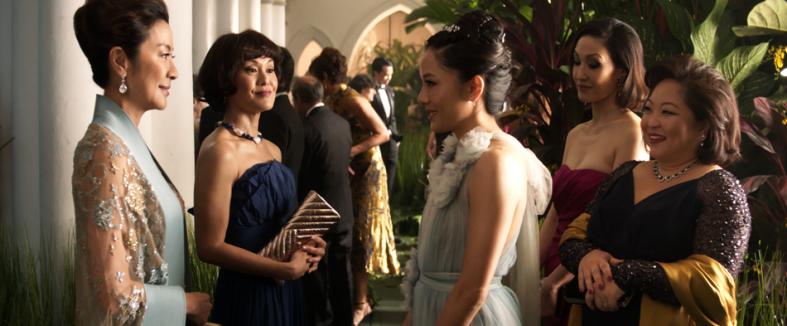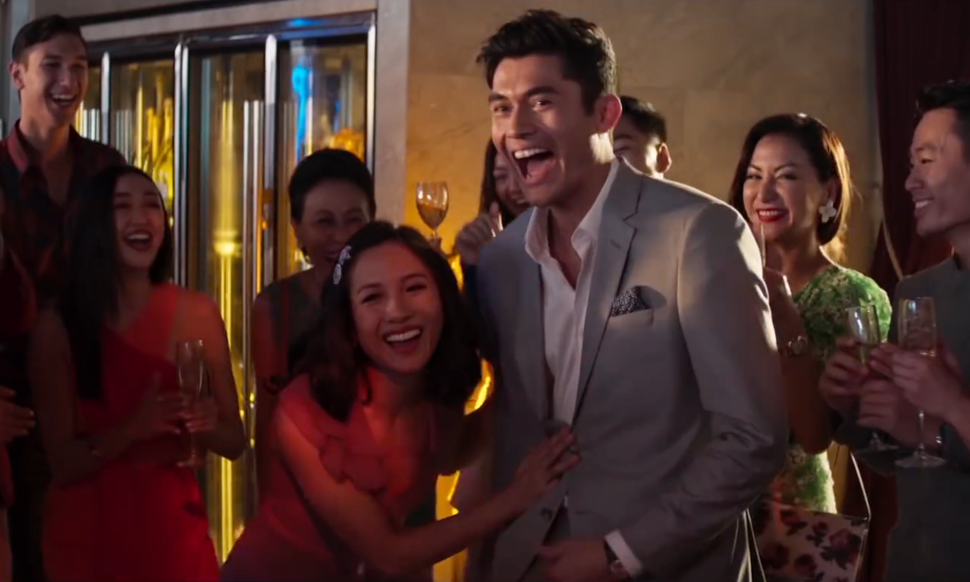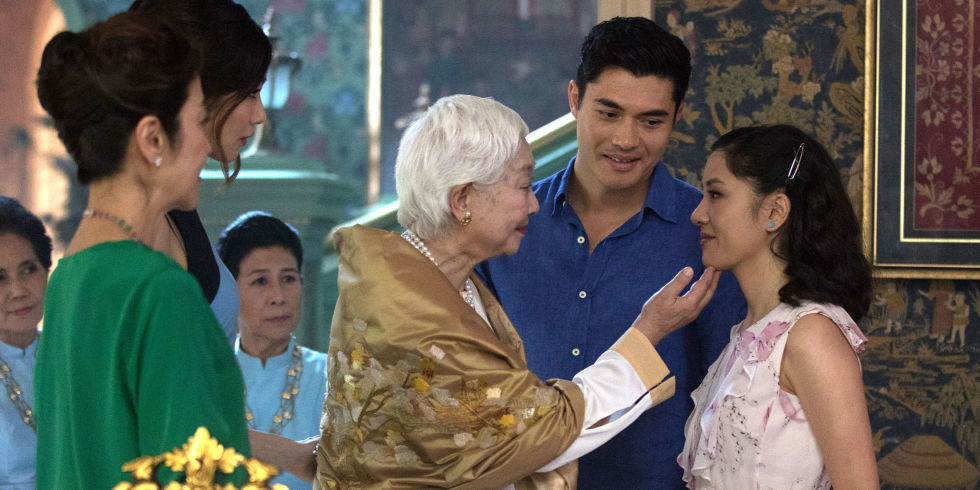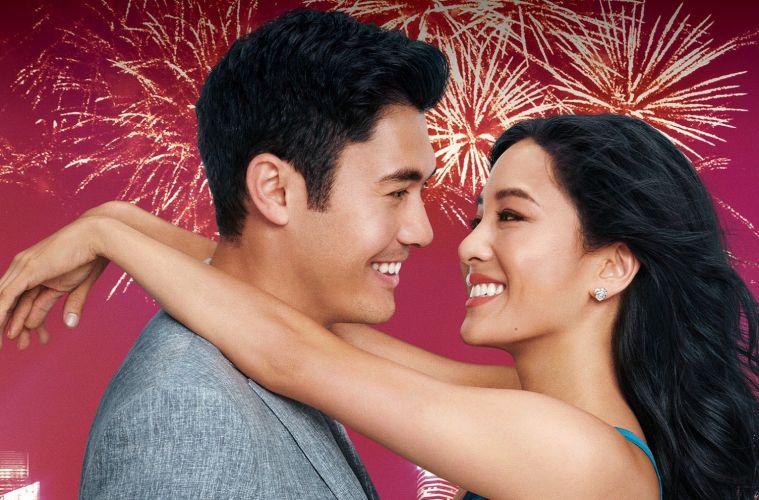Set to open in Singapore this week, Crazy Rich Asians has already reached #1 in North America, raking in US$26.5 million over its opening weekend. That may only be a tenth of what Marvel blockbuster Avengers: Infinity Wars made, but Crazy Rich Asians has set some of its own records. Over its opening weekend, Crazy Rich Asians has made more money than any other minority-led romantic comedies. It’s also Warner Brothers’ 5th most successful, beat only by star-studded films like He’s Just Not That Into You, Valentine’s Day, and the Sex and the City franchise. To date, it’s made US$39 million in America alone.
The hype around the film isn’t only about the dough. Its early success has sparked a serious debate over the viability, and comparative paucity, of Asian-led Hollywood films. The last one was Joy Luck Club in 1993 – a quarter-century ago. Why hasn’t there been more of such films? Could Joy Luck Club’s limited box office success have left a bad taste in investors’ mouths? Adjusted for inflation, Joy Luck Club made a mere $3.8 million in its opening weekend, and $57.3 million in total – a number Crazy Rich Asians will undoubtedly surpass.
So, what accounts for the latter’s runaway success? Just how relatable, how groundbreaking, and how representative was Crazy Rich Asians? Is it worth seeing, and talking about? Two Singaporeans based in America give their opinion. Disclaimer: They’re not crazy rich, but they sure are Asian.

MARCUS: I’m surprised this film even made it to a small theater in a small town in North Florida where I live. I mean, we didn’t even get Annihilation. It was Saturday mid-afternoon, and maybe half the theatre was full. I thought it was pretty good, considering we’re in the South here, and there are hardly any Asians in our community.
JIMMY: I watched it last night (Sunday) in Boston to a full house. I’d say 40% were Asian. There were audible cheers and sighs during moments of comedy and drama. The mixed crowd even cheered and applauded during the last scene! That was a goosebumps moment for me. I felt so much pride both as an Asian and as a Singaporean.
MARCUS: That’s great! Specific as our experiences are, the box office numbers do show that Crazy Rich Asians is doing exceptionally, and surprisingly, well all across America. Why do you think that is?
JIMMY: I believe the initial part of it is the all-Asian cast. According to box office estimates, Asians made up 40% of the audience turnout. There was probably a mix of curiosity and just flat-out support from the community.
MARCUS: So, you think it’s solidarity?
JIMMY: I’d like to think so. What continued the momentum was the well-written story, backed up by great lines and good acting.

MARCUS: I agree. The Warner Bros PR machine did a fantastic job in pushing the film. The glitzy trailer, beautiful cast, and wacky title must’ve caught the attention of many. And yes, the momentum was kept up by people actually liking it and rating it highly, but I think that’s not just because of the writing and acting, good as they were. Crazy Rich Asians may not look like a typical Hollywood romcom, but it’s basically that. The melodrama of a girl from a poor background meeting a prince, navigating the world of the wealthy and privileged; the relationship on a knife’s edge; then eventually she gains acceptance, and they ride into the sunset. Cinderella, Pride and Prejudice, tried and true, you know?
JIMMY: I’d add on to that and say, there was an overarching theme of hope, like Tan Kheng Hua (“Kerry Chu”, the lead female character’s mother) said in her interview with Anderson Cooper on CNN. Many people could connect with that universal theme and hence, after the initial show of solidarity or curiosity, it was that connection that many identified with. I’d go as far as to say, that message went beyond the storyline. Many felt moved by the fact that diversity in casting was challenged and it resulted in a victorious showing in box office takings – the classic David versus Goliath scenario.
MARCUS: And of course, everyone loves a good love story, especially when it’s a prince/pauper narrative with a villain to hate and a heroine to root for. Speaking of hope, do you think Crazy Rich Asians would open the way for more Asian-led movies in Hollywood? Will we see more without having to wait a quarter century?? [laughs]
JIMMY: I sure hope so! Crazy Rich Asians worked perfectly because it was set in Asia and well, featured Asians. What I hope the studios take away from this is that diversity in casting can work. This movie has proven that. In this digital age, it’s a strong message when the audience showed up at the theatres in droves to see it.

MARCUS: And they put up supportive posts all over social media! That sends a clear message to Hollywood that if they make these movies, people will come. Thank goodness Kevin Kwan has two more books to make into movies! I think Crazy Rich Asians so happened to be a story that could easily be packaged for Hollywood consumption – the glitz, the romance, the beautiful locales and clothing. It remains to be seen if Asian stories with that “Hollywood appeal” will be written. I think the success of Crazy Rich Asians is also hope for Asian actors, because it says, hey, Asian leading men and women can attract crowds too. People don’t mind seeing more Asian faces in films, whether it’s an all-Asian cast or not.
JIMMY: Well, some people didn’t agree with the “Asian faces” part of the hype. Singaporeans, naturally, complained about accuracy. Life in Singapore isn’t all glamourous, expensive and glitzy, they say, and not all Singaporeans look Chinese.
MARCUS: I must say, as a Singaporean, it was actually jarring to me, not seeing any Malay or Indian faces. I mean, yes, there were the Sikh guards at the Young home, but that’s hardly “representation”.
JIMMY: Well, it’s important to note that Kevin Kwan wrote the book primarily to target a Western audience, and here the term “Asians” refer to people of Oriental heritage. It’s also important to note that while this story is based in Singapore, it is just that. A story. Not a documentary or a video for our National Day Parade [laughs].
MARCUS: That’s true! “Oriental” has its own problems as a term, but let’s not get into that here!! I think we can afford to take it slow, one step at a time. We have to take into account what the target audience, herein Americans, are familiar with. I can’t count the number of times I’ve said “Malay” to friends here, and they’ve never heard of the term.
JIMMY: Same here!
MARCUS: Slowly but surely, though, we will get there! See what I did there?
JIMMY: [sings] Deep in my heart I just know, right from the start, we will grow…
MARCUS: NDP Forever!
JIMMY: There is validity behind the criticism and to ignore that would be to exercise Chinese privilege. However, I do hope that fellow Singaporeans and Asians who felt under-represented in the movie know that it wasn’t an intentional exclusion but just how the original story was written in the book.
MARCUS: That being said, it wouldn’t have been difficult for the casting director, or director, or producers, to include Malay and Indian faces. Even in the big party scenes, we don’t see any! I mean, that’s quite a feat. But I think the good the movie does in general for representation way outweighs its lack of racial accuracy in Singapore. It’s a pity our Malay and Indian friends are left out while everyone else can feel excited about the film. Again, “Asian” can mean a lot of things. Maybe we can all celebrate more Asian faces in general being seen, and look towards greater accuracy in the future.
JIMMY: I totally agree with you and I really hope we can all feel proud of the victory of an all-Asian cast regardless of our individual race or the part of Asia we’re from.
MARCUS: I’m from a working class family, so I may not be accurate in saying this, but, I don’t think there’s a family like the Youngs in Singapore. Have you heard of one?
JIMMY: I’ve heard of super-rich families in Singapore, but no, nothing that comes close to the extravagance displayed in the movie.
MARCUS: And nothing like an “Asian bachelor” right? Because I want to know if there is one.
JIMMY: NOPE. Nada. Sorry.

MARCUS: Danggit. Since we’re on this topic, did you think Henry Golding was a good leading man?
JIMMY: He’s an attractive guy. Actually, so are the other men in the film. Asian men represent! That said, kudos to the stylists for giving the guys style that is both impeccable and realistic for the tropical setting.
MARCUS: I agree with your assessment! Who can forget the watercooler moment when Pierre Png stepped out of the shower abs and all? Peranakan power lah. I think the general attractiveness of the main cast, plus the wonderful wardrobe, was another draw for audiences. It was one of those films in which the women’s wardrobe didn’t completely outshine the men’s. For any man in Singapore hoping to dress stylishly for the climate, Crazy Rich Asians would be a good playbook to follow. You got the beachwear, the cocktail wear, the everyday wear, all represented! Just don’t pick Ken Jeong as your role model.
JIMMY: I think you meant to say, Bernard Tai, aka rich, snobbish a**hole, played by Jimmy O. Yang? Those awful-looking gaudy shirts…. My poor eyes.
MARCUS: Good Lord have mercy, don’t pick him either! That was hard to look at. But I thought he got the rich ah-beng stereotype down quite well. And to be fair to the film, going back to representation – at least none of the Chinese actors started doing kung-fu ok?
JIMMY: [Laughs] True. Anyway, I must say that I’m proud that Singaporean actors were cast in this film and now, the world gets to know what we’ve known all along about these familiar faces (Tan Kheng Hua, Koh Chieng Mun, Pierre Png, Amy Cheng, Janice Koh, Selena Tan…), and that is, they can act and hold their own against other Hollywood actors.
MARCUS: Yes! And I think they did so without sacrificing sounding “Singaporean” for being palatable to an American or international audience. It’s a hard line to straddle, considering most of the main cast spoke in British accents. That was my other bone to pick, even though they explained that away with Oxbridge educations.
JIMMY: Accents are always tricky. Too much of a Singaporean accent and it could come across as pandering. Too little, and it could be perceived as inaccurate or a lack of national pride. I felt there was just the right balance from the Singaporean actors playing Singaporean characters.
MARCUS: Yes indeed, and good on them for doing that! And can I just add that Michelle Yeoh was perfect as usual? I’d say she’s the Asian Meryl Streep, but that’s giving Streep too much credit.
JIMMY: Okay, not going to wade into those dangerous waters. I don’t want death threats from Streep die-hards.
MARCUS: Grim Streepers or Storm Streepers?
JIMMY: LOL. In closing, shall we grade the film out of 10?
MARCUS: I’d give Crazy Rich Asians a 7.5. Evocative story brought home by good acting from the main cast, a well-adapted screenplay, and the spectacle of dazzling sets and costumes. It’s a well-executed example of a romcom genre film, nothing cinematically groundbreaking. It could’ve been more hard-hitting on issues, and more wholistic in representing Singapore.
JIMMY: I give it an 8.5. The casting was spot-on and the comedic timing from Awkwafina, Koh Chieng Mun, and Ken Jeong were exceptional. The cinematography was also breathtaking. The story’s simple themes gave it universal appeal across different demographics, and yet it had just enough drama to reel audiences in. I’m definitely looking forward to more book-to-film adaptations from Kevin Kwan! Meanwhile, the movie had me feeling all homesick, so I’m off to make my instant Laksa noodles now…
MARCUS: You just had to bring up your laksa privilege, didn’t you?
Marcus Yew lives and works in North Florida. Jimmy Lim is currently based in San Diego, California.


